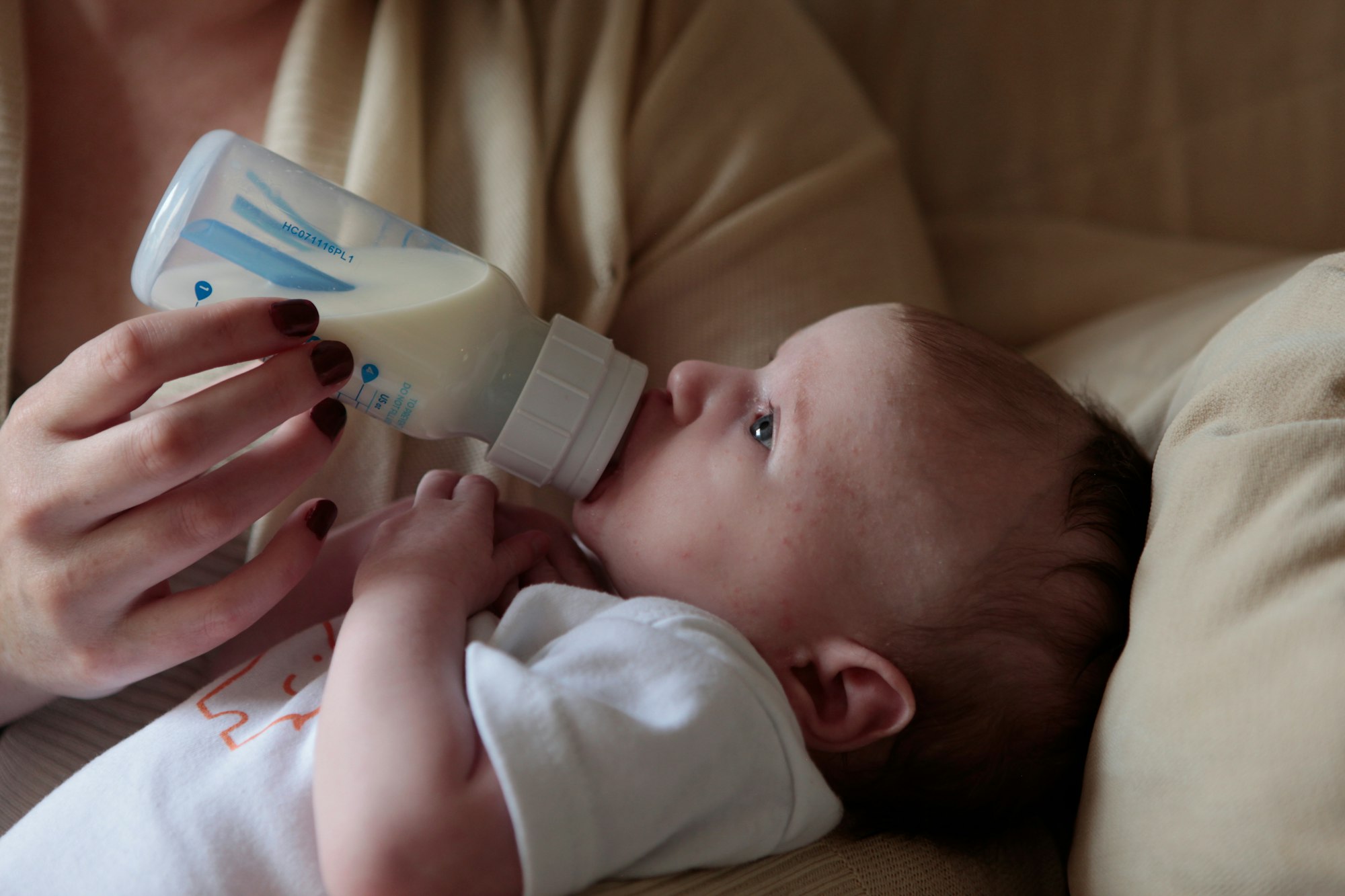Simplified: Nationwide baby formula shortages are hitting Sioux Falls parents. Here's a look what local pediatricians advise when you can't find what you need, as well as some local resources that may be of help.
Why it matters
- Baby formula, much like breastmilk, is what Sanford Pediatrician Dr. Jennifer Haggar called a "whole food." That is to say, it's a singular item that has all of the nutrition value an infant needs. That also means it's essential for babies to get the proper nourishment to grow and develop.
- Shortages will take awhile to course-correct. One factory that had been closed will resume production with FDA approval, the Washington Post reports, but it could still be weeks – if not months – before the shortage is resolved.
- In the meantime, parents facing empty shelves are struggling to find what they need to feed their babies.
"Unfortunately, people are going through some extreme measures right now," said Dr. Kara Bruning, Avera pediatrician and chair of pediatrics at Avera McKennan Hospital.
What to do when you can't find formula
- Be flexible about the brand. In general, a child using regular formula can transition from brand to brand without any issues.
- Tap into local groups. There are a handful of Facebook groups working to help connect people who have formula with people who need it. Sioux Falls milk share is one such page, and there's also a national "baby formula exchange" website.
- Talk to your pediatrician. Haggar said Sanford has been able to help get specialty formulas needed for patients, and when possible, she's also sending patients home with samples of formula to help tide them over.
"I have not yet had a family who needed help finding formula ... and not been able to find it for them in some way," Haggar said. "That includes patients on really specific and challenging-to-find formulas for complex medical problems."
What NOT to do
- Water down your formula. This is a big no from pediatricians.
"That does not meet a kid's nutritional needs and can have significant impacts on their long-term health," Haggar said.
2. Make homemade formula. Another big no.
There are several homemade formula recipes circulating online, but they often lack the right nutrients and calories that infants need.
3. Buy breastmilk online. This isn't to say that donated breastmilk is bad. But if you're receiving breastmilk for your child, make sure you're finding it from a trusted source.
- Haggar suggests asking the person who produced the milk what medications they're on, if they've been tested for HIV or hepatitis and if they have other specific illnesses that could be passed along through breastmilk.
- And don't buy breastmilk from an unknown online source. It's usually not breastmilk, Haggar added.
What other resources are available?
Low-income parents can get formula through the Union Gospel Mission's food box program, which runs 1 p.m. to 4 p.m. Tuesdays and Thursdays at the mission's thrift store.
The Mission also has a list of resources for formula assistance, including:
- The Alpha Center, 3405 S. Kiwanis Avenue. Phone: 605-361-3500
- Department of Health (WIC), 1200 N. West Avenue. Phone: 605-367-5228 (must be WIC client to receive)
- Minnehaha County Dept. of Human Services, 521 N. Main #201. Phone: 605-367-4217.


